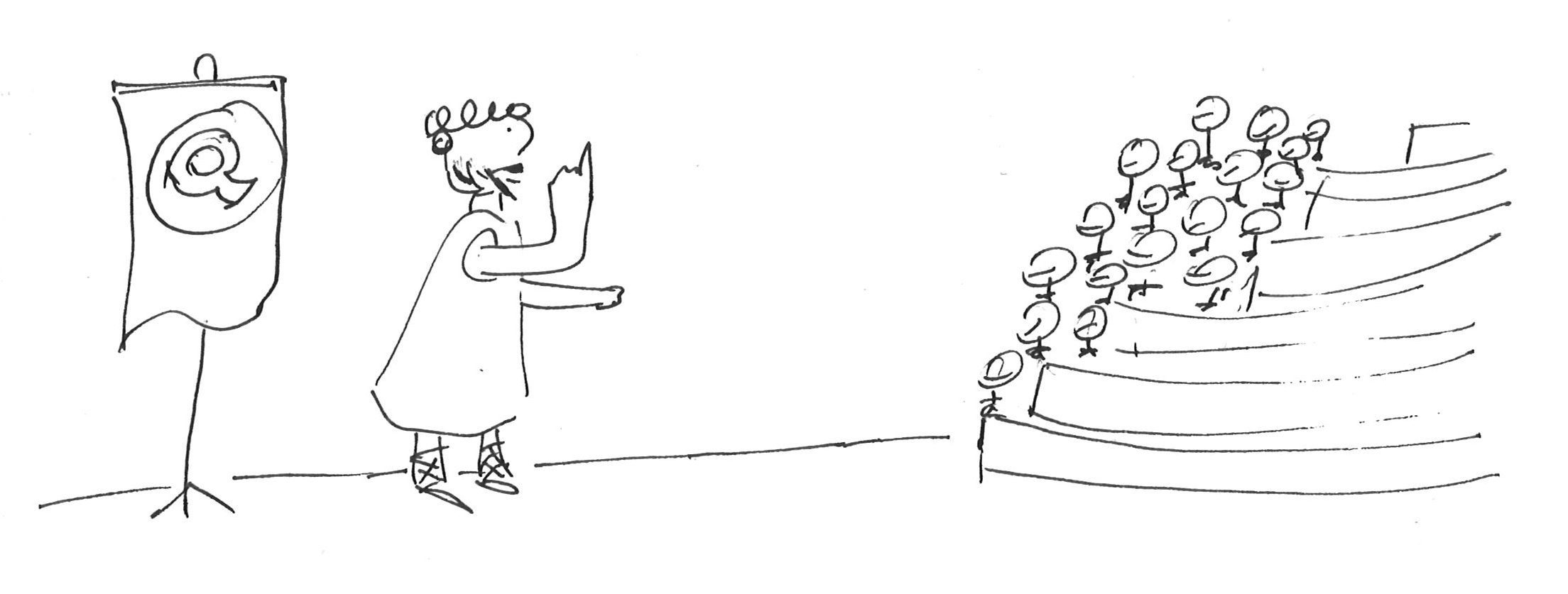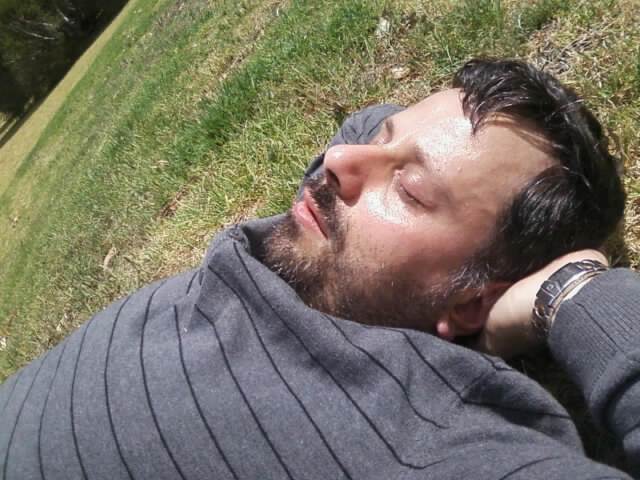Poll: Are you seeing ads on Quora?
Purpose: To determine how ads rollout on Quora correlates with region and top writer status.
Deadline: No hurry.
Poll: Are you seeing ads on Quora?
Purpose: To determine how ads rollout on Quora correlates with region and top writer status.
Deadline: No hurry.
Not on TWs, but on 2K by Nick Nicholas on Opɯdʒɯlɯklɑr In Exile
Anyway. I’m not writing about the quill here, I’ve said too much already. But just as Jordan has just hit 20K followers with no quill, I have just hit 2K followers, with no quill.
https://opuculuk.quora.com/Not-o…
Uri Granta: How about a drawing of you speaking to the two-thousand in an amphitheatre (or wherever it was that the Greeks did their public speaking)? Suitably attired, of course.

All Balkan languages have borrowed substantial Turkish vocabulary, and all Balkan languages have borrowed some Turkish affixes.
However, the Balkan Sprachbund is defined through the convergence of grammars, rather than just their borrowings from a common source. It is defined by shared morphological categories and syntactic constructions: a convergence such that, if you replace a Greek sentence with Albanian, word for word and suffix for suffix, the results will more or less make sense.
In that regard, the contribution of Turkish has been marginal. The “supposedly” suffix of Turkish, –miş, counts as a new morphological category, and has found favour in at least one dialect of Aromanian. That instance aside, the morphology and syntax of Turkish have remained quite distinct from that of the Balkan languages. (What happened to Greek in Anatolia was a different story, but it does not count as Balkan.)
Greeks in recent years have established contact with the Pontic-speaking Muslims of the Of Valley, who remained in Turkey after 1923. (Their autonym for the language, unsurprisingly, is Romeyka.) They are renowned as devout Muslims, prominent in Islamic learning. (One might ruefully speculate that they feel they have something to prove.) Any promotion of the Greek dialect has unsurprisingly being viewed with suspicion by the Turkish state, and its most prominent advocate Ömer Asan has been prosecuted by the government, and has moved to Greece.
(See Greek-speaking enclaves in Pontus today: The documentation and revitalization of Romeyka (Chapter 8) – Keeping Languages Alive)
What do Christian Greeks think of them? This is necessarily speculative, but I’m drawing on both introspection, and on a couple of Greek TV programs I have seen.
Awkward. On the one hand, they are a living connection to the Lost Homelands. They have preserved a language which in Greece itself is emblematic but moribund. They are friendly to the waves of refugee descendants going on pilgrimage back East. They are, in one sense, Our People.
In another sense, they remain the Other. They are clearly Not Our People. They are clearly Muslim Turks, not Crypto-Christians as the nationalist narrative would much prefer. They are those who got to stay when Our People were made to leave.
I watched a program where an old Muslim Rum sang a Christian song he remembered from his youth, on Greek TV, with several Christian Pontic guests present. The guests looked moved.
But they also looked profoundly unhappy.
I’m a great believer in consistency, and I have not changed my profile pic in ages.
As I wrote last year:

My avatar picture, courtesy of my wife, is me doing something uncharacteristic. Lying down in the park and taking in the sun. It’s a memento temperare: a reminder to myself to keep it cool…
My profile pic has gathered two reactions I know of:
Nick Nicholas. THE INSURGENT, THE REBEL, SPEAKER FOR THE DEAD AND THE DEACTIVATED, QUORA’S VERY OWN CHE GUEVARA, FIGHTING THE GOOD FIGHT AGAINST QUORA INC. VIVE LE QUORA , DEATH TO ORWELLIAN TACTICS. Please do not look at his profile picture, it shows a really chill dude, not a revolutionary with blazing guns and a bomb strapped to his nether regions.
Of course, that photo of me lying down in the park does not actually show my nether regions, does it. And there’s plenty of room next to me for cached firearms…

(See? Ché could smile sometimes…)

(… No, I don’t look like him.)
Not that I know as much Albanian as you might think, but there was no way that this is Arvanitika or Tosk. It has Gheg shibboleths, including â, and âshtë for ‘is’. With its overload of diacritics, this is clearly a 19th century scholarly transcription of Albanian.
The fact that it uses Greek letters for δ, θ does not mean much: in the 19th century, the only transcription options in Latin script were δ, θ or ð, þ. (And the IPA ended up going with one of each.) A transcription would not have used the <dh, th> that Albanian ended up using, because they would have been taken as aspirated stops.
A dictum from Michaelis Maus which is quite true of the Silicon Valley manifestation of technocommunism. True of Google, True of Facebook.
… Except, Quora once again has an idiosyncratic take on it:
Do Top Writers not see ads on Quora?
They don’t: so the content producers who Quora values the most don’t get ads. In that regard, they are not directly monetised…
… but they are still commodified. Oh, Good Lord, are they ever commodified…
Scott Welch: When do you think Quora is going to end? by Nick Nicholas on The Insurgency
- Why does Quora not care when users leave? Because content written by the Ian York’s of the world will be generating revenue forever.
- Why does Quora not appear to care about writers? Because we are disposable bots who exist only to game PageRank.
If I am to take part in a Quora Book of Generations, it won’t be sycophantic. Adam and Charlie in the creation story ended up playing the parts of Cain and Abel, after all, as is so frequent in corporate history. And, again as is so frequent in corporate history, it is Abel, not Cain, who ends up exiled.
Myself? I’ll have no part of the lineage of either Cain or Abel. Which would have to make me of the line of their brother Seth, just as much of humanity is.
I like the sound of the Nephilim. Reputed to be of the line of Seth, or of fallen angels. Giants and men of renown, who frightened the Israelites. Yet they too got to have a share of this good Earth.
So. What is supposed to be the Deluge in this Book of Generations?
It is happening right now in New Zealand, this time with short front vowels: New Zealand English phonology. Chain shift – Wikipedia lists five other vowel shifts underway in English.
I trust, OP, you appreciate the… clashiness of your request. Even if Rumi actually did write some verses in Greek.
I guess, καυχῶμαι μουσουλμάνος σουφιστὴς ὤν. You won’t find “Mussulman” in any Koine texts, but you certainly find the adjective in the 12th century. You won’t find “Sufi” in Byzantine Greek either, and Ottoman Greeks would far likelier have referred by name directly to the Mevlevi Order they were familiar with; but I don’t think the modern reference to “Sufist” would be out of place.
Well, no more than the whole sentence would be, really. 🙂